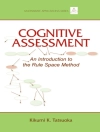Mick Cooper and John Mc Leod pioneer a major new framework for counselling theory, practice and research – the ′pluralistic′ approach. This model breaks away from the orientation-specific way in which counselling has traditionally been taught, reflecting and responding to shifts in counselling and psychotherapy training.
As accessible and engaging as ever, Cooper and Mc Leod argue that there is no one right way of doing therapy and that different clients need different things at different times. By identifying and demonstrating the application of a range of therapeutic methods, the book outlines a flexible framework for practice within which appropriate methods can be selected depending on the client′s individual needs and the therapist′s knowledge and experience.
This is a must-read for anybody training or practising in the counselling or helping professions – it should not be missed!
Jadual kandungan
Introducing the Pluralistic Approach
Foundations for a Pluralistic Approach
Building a Collaborative Therapeutic Relationship
Client Goals: The Starting Point for Therapy
Tasks: Focusing the Therapeutic Work
Methods: Resources for Facilitating Change
Research: Developing Pluralistic Counselling and Psychotherapy
Supervision, Training, CPD and Service Delivery: Pluralistic Perspectives
Discussion: Towards a New Paradigm
References
Mengenai Pengarang
John Mc Leod has held appointments in universities in the UK, New Zealand and Italy, and is currently Professor of Counselling at the Institute for Integrative Counselling and Psychotherapy, Dublin, and Professor of Psychology, University of Oslo. He is committed to promoting the relevance of research as a means of informing therapy practice and improving the quality of services that are available to clients, and has received an award from the British Association for Counselling and Psychotherapy for his exceptional contribution to research. His writing has influenced a generation of trainees in the field of counselling, counselling psychology and psychotherapy, and his books are widely adopted on training programmes across the world.












